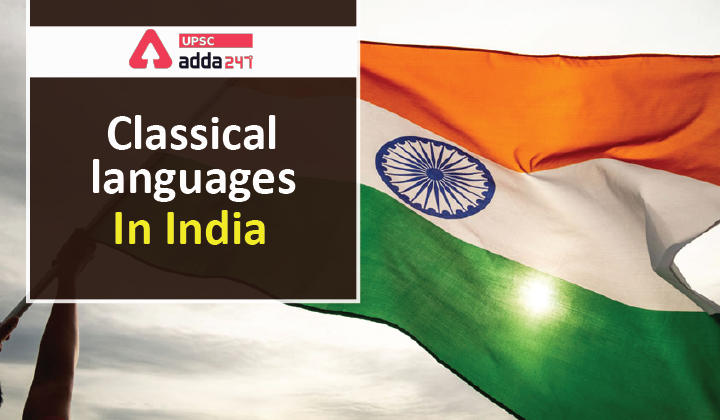Table of Contents
Classical languages of India- Relevance for UPSC Exam
- GS Paper 1: Indian History- Indian culture will cover the salient aspects of Art Forms, Literature and Architecture from ancient to modern times.
Classical languages of India- Context
- Classical languages in India are recognized as per the guidelines issued by the Ministry of Culture.
- Proponents of many languages often demand the status of classical languages to various languages.
- For example, in 2020, Akhil Bharatiya Marathi Sahitya Sammelan passed a resolution demanding the declaration of Marathi as a ‘Classical’ language.
List of Classical languages in India
- Background: In 2004, the Indian Government decided to give certain Indian Languages as Classical Languages who are meeting certain requirements.
- List of Classical Languages: Till now six Indian Languages have been given the classical language status in India. Six classical Languages are-
- Tamil (declared in 2004),
- Sanskrit (2005),
- Kannada (2008),
- Telugu (2008),
- Malayalam (2013), and
- Odia (2014).
List of Major Constitutional Amendment Acts- Part 1
Classical languages of India- Criteria for Classical Languages in India
- Criteria: Ministry of Culture provides the following criteria for declaring a language as ‘Classical’ language-
- High antiquity of its early texts/recorded history over a period of 1500-2000 years;
- A body of ancient literature/texts, which is considered a valuable heritage by generations of speakers;
- The literary tradition be original and not borrowed from another speech community;
- The classical language and literature being distinct from modern, there may also be a discontinuity between the classical language and its later forms or its offshoots.”
- Classical Languages and Eight schedule of Indian Constitution: All Six Classical Languages are listed in the Eighth Schedule of the Constitution.
List of Major Constitutional Amendment Acts- Part 2
Classical languages of India- Associated Benefits
The Human Resource and Development Ministry provides certain benefits once a language has been notified as classical language. These benefits are-
- Two major annual international awards for scholars of eminence in classical Indian languages.
- A Centre of Excellence for Studies in Classical Languages is set up
- The University Grants Commission (UGC) is requested to create, to start with at least in the Central Universities, a certain number of Professional Chairs for the Classical Languages so declared.
- The University Grant Commission (UGC) also awards research projects for promoting these Classical languages.
- The UGC released funds worth INR 56.74 lakh in 2016-17 and INR 95.67 lakh in 2017-18.
The Editorial Analysis: A language ladder for an education roadblock



 TSPSC Group 1 Question Paper 2024, Downl...
TSPSC Group 1 Question Paper 2024, Downl...
 TSPSC Group 1 Answer key 2024 Out, Downl...
TSPSC Group 1 Answer key 2024 Out, Downl...
 Cabinet Ministers of India 2024, New Cab...
Cabinet Ministers of India 2024, New Cab...







